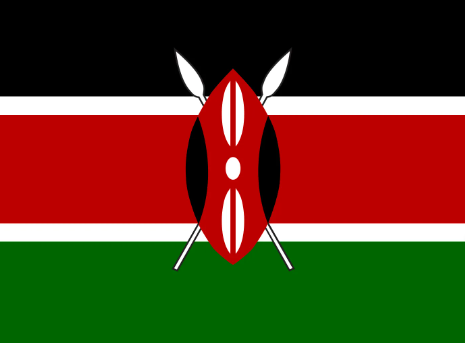CURRENT AFFAIRS UNIT, RADIO KWARA, ILORIN
PROGRAMME: NEWS COMMENTARY
DATE OF BROADCAST: 4/5/89 AT 1810 HOURS
WRITER: LANRE KAWU
This week, the Kenyan Vice-President, Josephat Karanja, resigned his appointment. This followed in the wake of the no-confidence passed against him in Parliament, a few days earlier. His one year in office, was the shortest, in Kenyan history, and that contrasts with the three years that Mwai Kibaki stayed in office, or the very many years it took Arap Moi himself, to understudy the late President Jomo Kenyatta.
Josephat Karanja was accused by his opponent, of being very arrogant, disloyal to the Presidency, and even a traitor. The latter accusation followed in the wake of the mysterious bombing of Kenya recently. Kenyan political circles believed that the planes that did the bombing came from Uganda. Since the vice president was married to a Ugandan woman, the he must have had foreknowledge of the bombing raid, along with other acts of alleged aggression, emanating from the neighbouring state.
Vice President Josephat Karanja was an unfortunate politician by all accounts. He spent most of his life as an academic, or a diplomat. He was therefore unable to build the power base that was very crucial for survival, in the Kenyan political arena, characterised as it is, by vicious horse-trading, intrigues, blackmail, and even assassinations. Another school of thought, holds that the campaign against Vice President Karanja, even if it originated from his home area, must have received at least, the tacit support of President Arap Moi. An indication of the trend of institutionalised autocracy and personal rule, which appeared so distinctly, after the attempted coup d’etat of the early 1980s.
Kenyan politics has an unfortunate, and even tragic underlining to it. The struggle for independence was very bitter. Kenya was one of the few settler colonies in Africa, with a conducive climate and good land for agriculture. From early in the 20th Century, African people had been deprived of their land, and were forced to work as farm labourers. It was the pent-upfrustration, that led to the guerrilla war, waged by the Land and Freedom Army (or Mau Mau), led by Dedan Kimathi. More than 30,000 African lost their lives in that historic and heroic war.
At independence in 1963, President Jomo Kenyatta and his KANU Party, did not dismantle the colonial state machinery. Instead, the repressive organs were strengthened, while the state sector became a huge bureaucratic machinery, used to enrich cronies of the President and the party apparatus. The chances to legally oppose the activities of the KANU henchmen were curtailed. Patriots like Oginga Odinga, the former Vice President, were imprisoned, while others like Pio Pinto and J.M Kariuki, were assassinated.
Kenya became the classical neo-colonial state. Its ports, located strategically in the Indian Ocean, were handed over to the American Navy, while in many African anti-imperialist struggles, Kenya often took the sides of the enemies of the continent.
The recent removal of the Vice President, Josephat Karanja, is further testimony, to the decadence of the Kenyan political landscape. It helps us to see much more clearly, that in Kenya, as much as in much of the continent, the ruling classes are becoming increasingly desperate, as they fail to grapple with the intricacies of building genuinely democratic states, that will serve the true interests of the mass of the African peoples. Kenya’s situation, afforded us the opportunity to see the bankruptcy of neo-colonialism, in its naked nastiness.


